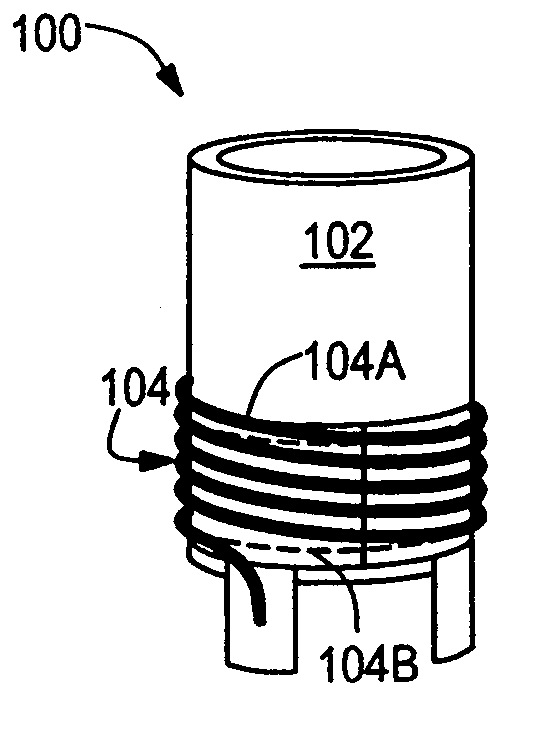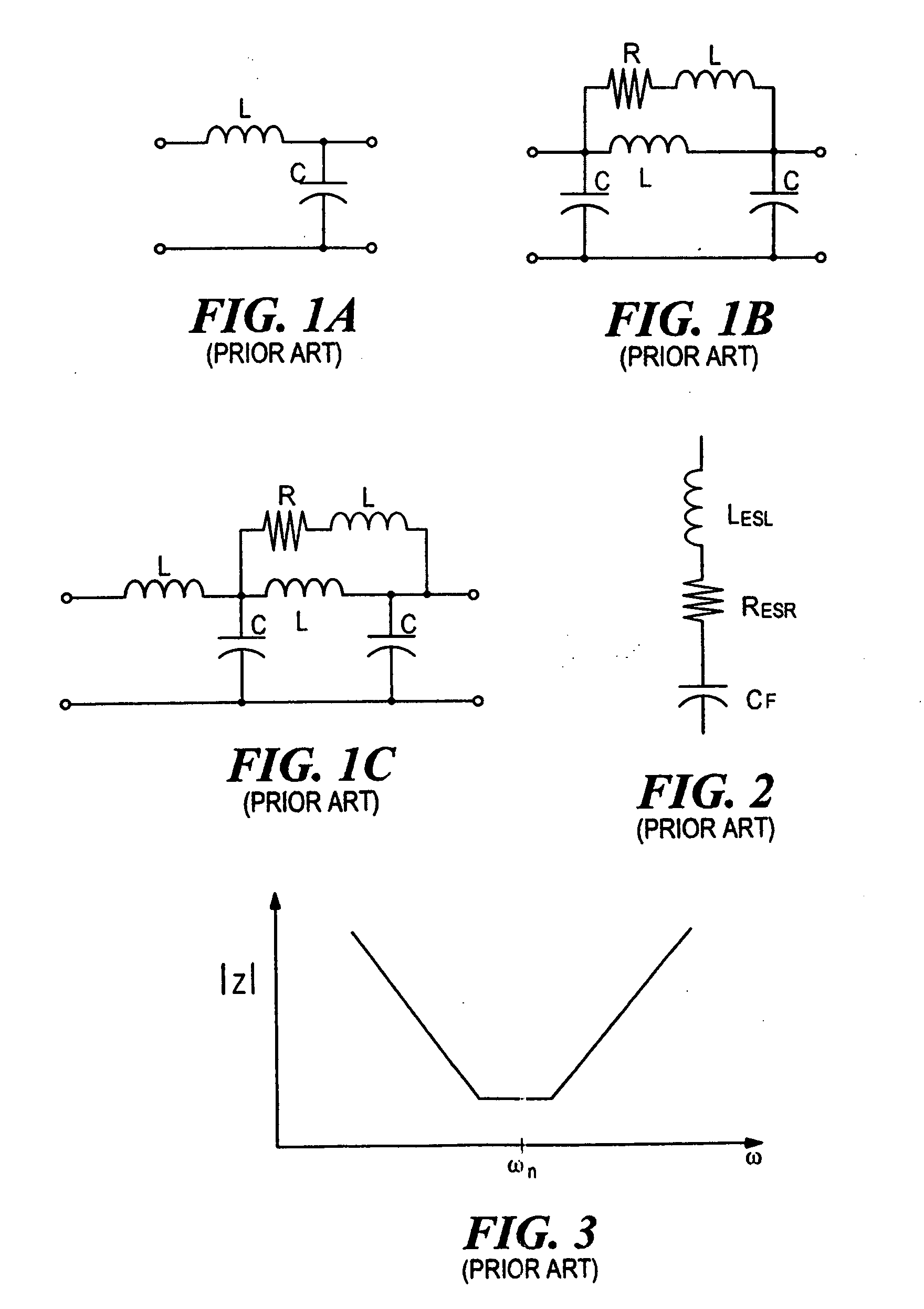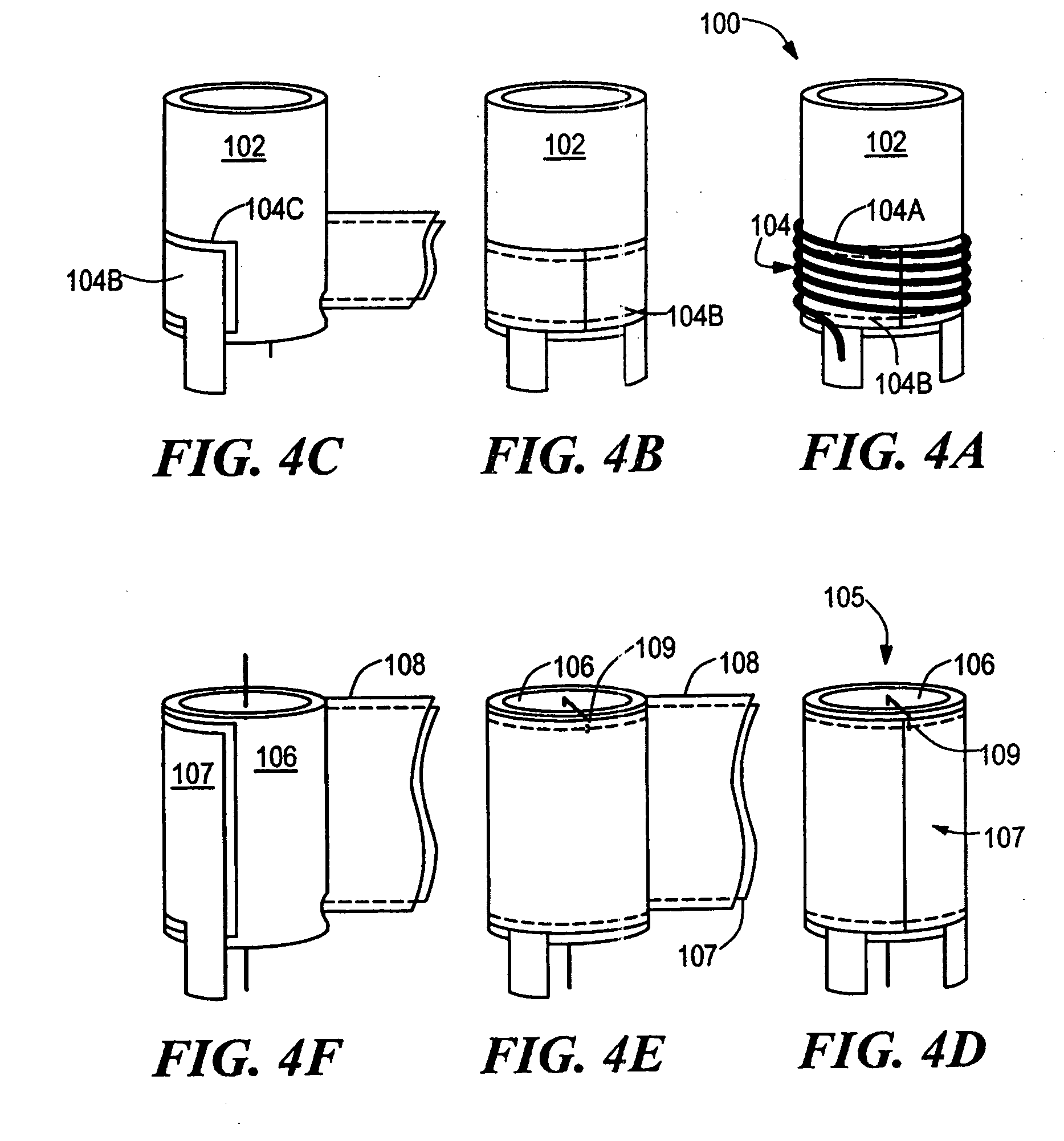Filter having parasitic inductance cancellation
a filter and parasitic inductance technology, applied in the field of filters and components for suppressing electrical signals, can solve the problems of reducing the performance of such filters, limiting the ability to shunt ripple at high frequencies, adding considerable size, complexity, and cost to filters, and achieves the effect of improving performance over frequency
- Summary
- Abstract
- Description
- Claims
- Application Information
AI Technical Summary
Benefits of technology
Problems solved by technology
Method used
Image
Examples
examples
[0093] FIGS. 15A-C show various fabrication stages of an illustrative prototype filter element 700 having inductance cancellation in accordance with the present invention. Inductance cancellation magnetics 702a,b were wound on the outside of a United Chemi-Con U767D 2200 μF, 35 V electrolytic capacitor 704. A first (capacitor-path) winding 702a, which is shown as a foil winding, is added about the capacitor package. A second (inductive-path) winding 702b, which is shown as a wire winding, is placed over the first winding 702a. Use of the capacitor body as the winding form minimizes the overall volume of the filter element and illustrates the possibility of incorporating the coupled windings inside the capacitor package.
[0094] The capacitor-path winding 702a is wound with 1 inch wide, 1 mil thick copper tape, insulated with 1 mil mylar tape. One and three fourths turns on the capacitor body (circumference of 7.1 cm) were found to be sufficient to achieve a desired level of coupling....
PUM
 Login to View More
Login to View More Abstract
Description
Claims
Application Information
 Login to View More
Login to View More - R&D
- Intellectual Property
- Life Sciences
- Materials
- Tech Scout
- Unparalleled Data Quality
- Higher Quality Content
- 60% Fewer Hallucinations
Browse by: Latest US Patents, China's latest patents, Technical Efficacy Thesaurus, Application Domain, Technology Topic, Popular Technical Reports.
© 2025 PatSnap. All rights reserved.Legal|Privacy policy|Modern Slavery Act Transparency Statement|Sitemap|About US| Contact US: help@patsnap.com



